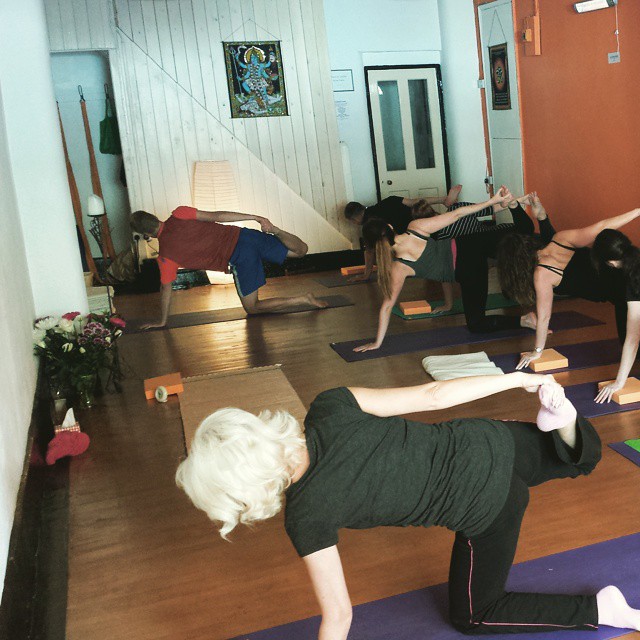I share a blog post by my fiancée Francesca – you can find her on her blog Frankieglobetrotter
Recently, I received an email from somebody who asked me to share a piece on how yoga can benefit when recovering from addictions. It was such a coincidence, as I was asked a while ago to offer a yoga practice to a group of people who have joined a program to overcome addictions. They have several centres and they operated in my town, Macclesfield.
I was very reluctant at first – not having had a lot of experience in the field I was a bit concerned. The facilitator had to chase me with insistent phone calls for a while… And I am so glad she did! I have been offering the practice on a Saturday morning for a few months now, and I am delighted to say that I thoroughly enjoy the class, and I believe the students do too.
It comes as a revelation that yoga can help people with addiction problems. Addiction functions on many levels, but a common feature is a sense of detachment from the body. Yoga poses contribute to cultivate focus and attention on the body and help counteract this sense of alienation. We practice a lot of breathing too, and that seems to have a profound effect on calming the body but, most importantly, the mind.
I have sensed this intuitively, and the fact that this lovely group keeps on coming back is a sign that something must be working… they enjoy the time for themselves, to be able to connect with the body and the breath in a non competitive environment, in a space that can be theirs and where they can simply be.
I share this piece as an introduction by Mel Billington:
For individuals in recovery, one of the most difficult things about living a healthier life, is combatting stress. It is vital for these individuals to find natural ways to fight tension, if they are to avoid a relapse and be forced to start all over again, from square one.
In top rehabilitation centers across the globe, there is one ‘complementary activity’ that is fast coming to play a starring role in recovery programmes: yoga, the ancient practice enjoyed by millions of people of all ages. Although in the East, yoga has long been used as a means of embracing health from an integrated perspective, in the West, we are only just waking up to its powerful benefits, largely owing to important scientific findings made over the last decade.
Numerous studies have shown that yoga significantly reduces levels of stress hormone, cortisol, which is linked to so many illnesses and conditions, including heart disease, diabetes, metabolic syndrome, and anxiety and depression. The combination of asanas (controlled poses), pranayama (controlled breathing) and mindful meditation, keeps our ‘fight or flight’ response at bay.
Yoga has also been found to decrease pain – namely, migraine-related and lower back pain. Additionally, it is a popular adjunct therapy for women receiving radiotherapy for breast cancer, since it has been found to improve outcomes in this group, reducing symptoms of stress and giving them a greater sense of vitality.
Yoga is more than a practise; it is a lifestyle which embraces a way of being and behaving. Fervent practitioners often consume a vegetable-based diets and espoused the importance of kindness to all sentient things. If you are ready to embrace a new way of living that will make you healthier and happier, and change your and the world in a positive way, why not give yoga a try?

